Review
Audi, BMW and Mercedes-Benz have enjoyed a hegemony in the premium lower-medium segment, with fleets attracted by low running costs and drivers lured by their badges.
And while Lexus has had its IS diesel challenger in the sector for the past two years, it has never made much of a dent on the German trio.
But the revised IS220d should change things.
The engineering changes (improved aerodynamics, revisions to the engine block and low viscosity oil) have brought about a reduction in CO2 emissions.
The new model emits 148g/km of CO2, down from 163 before. This spells significant savings not only for businesses in terms of writing-down allowances (now coming in well under the 160g/km threshold), but also for drivers as they will now pay tax based on the 20% benefit-in-kind band, rather than 23%.
The IS still can not match the low emissions of the Audi A4 and BMW 3 Series, but its lower front-end price (£2,500 cheaper than the A4 2.0 TDI 170 and £3,000 less than the 320d ES) spells the lowest company car tax bills of the cars featured here – £148 a month for a higher rate taxpayer.
This front-end price advantage also means savings for a company in terms of running costs – while the IS220d’s residual value prediction of £8,100 (36% ) is lower than the others, it translates into the least cash lost over three years and 60,000 miles thanks to the lowest P11d value.
And even though the SE version is the entry-level model (as are the three rivals), the Lexus trumps them for kit with cruise control, six-CD changer and leather-effect seats.
On the road its 175bhp diesel engine delivers smooth power from low down the rev range, and noise intrusion levels are low.
Safety and reliability are also top notch – a five-star crash test rating from EuroNCAP (under the old test rules) and Lexus charting in the top 10 most reliable manufacturers in the FN50 reliability study.
The timing of the arrival of the revised IS220d could not be better – it will help companies and fleets lower tax bills and, with the recent merger of the Toyota and Lexus fleet departments, means it can fill a niche in those fleets who don’t want the ubiquitous German premium model.
Fleet view
We operate a user-chooser policy and nine drivers have opted for the Lexus IS 220d. It offers contemporary styling and is well spec’d and well priced compared to its competitors. The diesel engine is refined and quiet and I’ve yet to have any complaints about reliability.
James Williamson, Fleet Contracts Manager, Zurich Financial Services
Rivals
Audi A4 2.0 TDI 170 SE
BMW 320d ES
Mercedes-Benz C220 CDI SE
P11d price
Lexus is easily the cheapest, and is also the best equipped. BMW costs £3,000 more.
1. IS220d £22,230
2. A4 £24,705
3. C220 £24,807
4. 320d £25,210
Emissions and tax
Lexus and Audi will cost a 40% taxpayer £148 a month. The BMW costs £151, Mercedes £182.
1. 320d 128g/km/18%
2. A4 139g/km/18%
3. IS220d 148g/km/20%
4. C220 156g/km/22%
SMR cost
Variable servicing gives lowest SMR costs for the BMW. Lexus has 10,000-mile intervals.
1. 320d 3.45/£2,070
2. C220 3.71/£2,226
3. IS220d 4.24/£2,544
4. A4 4.66/£2,796
Fuel costs
BMW claims 58.9mpg combined. Audi delivers 53.3mpg, the Lexus 50.4 and Mercedes 47.9.
1. 320d 7.91/£4,746
2. A4 8.74/£5,244
3. IS220d 9.24/£5,544
4. C220 9.73/£5,838
Depreciation costs
IS’s 36% RV is lowest, but it’s cheapest to buy. A4 retains 39%, Mercedes 38% and BMW 37%.
1. IS220d 23.55/£14,130
2. A4 25.21/£15,126
3. C220 25.63/£15,378
4. 320d 26.55/£15,930
Wholelife costs
Low depreciation tips the balance in favour of Lexus with £500 saving per car over the BMW.
1. IS220d 37.03/£22,218
2. 320d 37.91/£22,746
3. A4 38.61/£23,166
4. C220 39.07/£23,442
Winner: Lexus IS220d SE




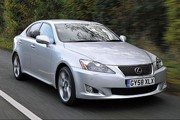
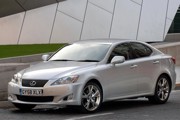
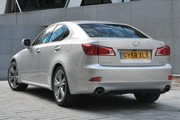
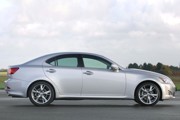
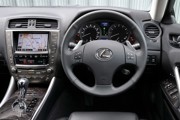
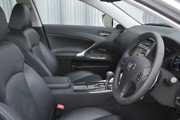
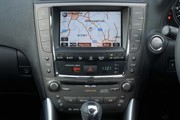
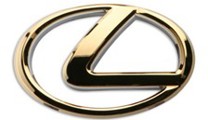












Login to comment
Comments
No comments have been made yet.